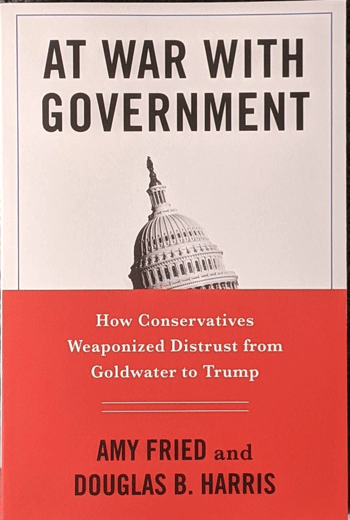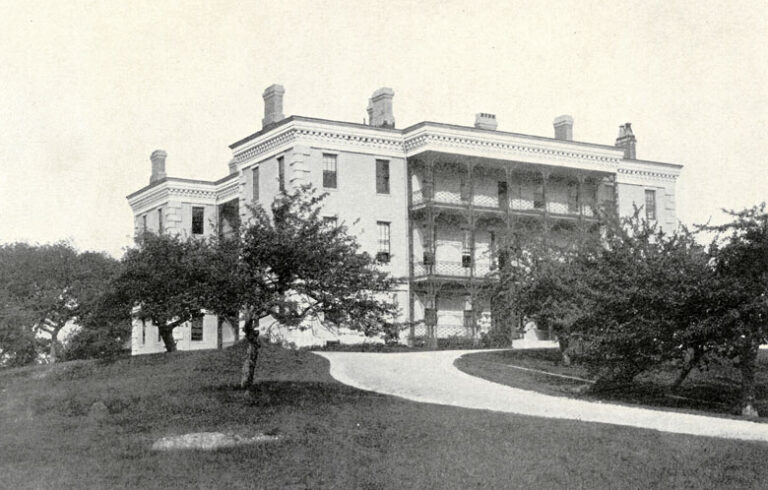At War with Government: How Conservatives Weaponized Distrust from Goldwater to Trump
By Amy Fried and Douglas B. Harris; Columbia University Press
University of Maine political science professor Amy Fried’s new book concerns a pattern in recent political history you may very well think quite familiar.
At War with Government: How Conservatives Weaponized Distrust from Goldwater to Trump, co-authored with Douglas B. Harris of Loyola University, documents and details how American distrust of government has been utilized since the 1960s as part of a carefully planned political strategy intended to reap benefits in clearly defined organizational, electoral, institutional, and policy areas.
In 1964, Fried and Harris observe, Republican Barry Goldwater ran for president as, in a way, the first major-party “conservative.” Working with resentments rooted in the 19th century, his campaign inflamed fears that big government was on the brink of creating a communist welfare state that would do away with American freedoms.
In the 1980s, as the so-called Southern strategy took hold in which Republicans cultivated the support of working-class Democrats disaffected by their party’s support of the civil rights movement, Ronald Reagan cultivated fear of government by warning of alleged stifling effects of government regulation.

In the 1990s, the Newt Gingrich-led GOP portrayed government as specifically “anti-family” and framed reform of the health care financial system as a threat of government takeover. Then, following George W. Bush’s foreign policy debacles, spending expansions, and crashed economy, a black man, Barack Obama, was elected president and the stage was set for the Tea Party, which Republicans fostered by pretending it was a grassroots movement, which it by and large was not. Instead, it was an orchestrated component of the same long-term strategy operational since Goldwater.
The authors show how Donald Trump’s efforts to provoke impulses to “punch government in the face” were a direct outcome of the decades-long strategy. By the time Trump launched the most staggering lie of all about election fraud, trust in government was so grievously destabilized that not only confidence in bureaucracy, but in elections themselves was cracked. The results, whose end does not appear to be in sight, include the Republican Party itself tearing apart alongside a violent effort to overthrow the government, apparently incited and abetted by the former president himself.
With Trump, “war” with government stopped being metaphorical.
Fried and Harris are not making this up, to use a phrase from a journalistic master of irony. At War with Government makes its case with painstakingly researched historical information and well-vetted studies in political science. From my perspective, they skate too quickly over anti-government resentment in the South dating from the Civil War, and mention only in passing Fox News, which appears to have played a significant, aggressive role as both a central instrument and an active participant in the strategy in the past twenty years.
But these are small criticisms of a book that lucidly explains a fact of our political history that desperately needs to be more widely understood.
Anyone interested in this particular political thread among the many leading to the mess we’re in right now, should read this book, if only to get their facts straight.
Dana Wilde is a member of the National Book Critics Circle. His recent book is Winter: Notes and Numina in the Maine Woods published by North Country Press.





